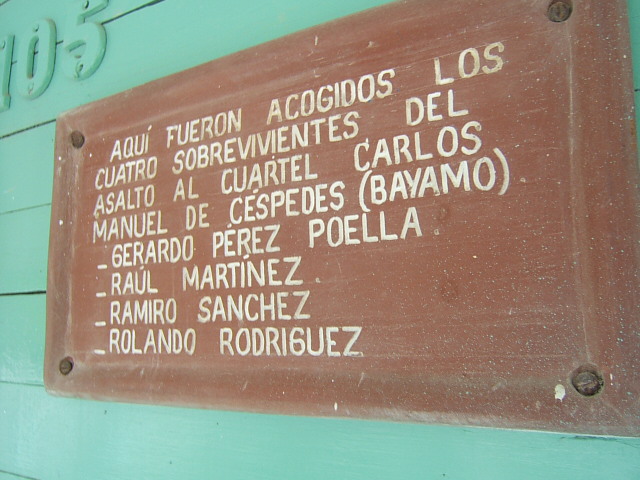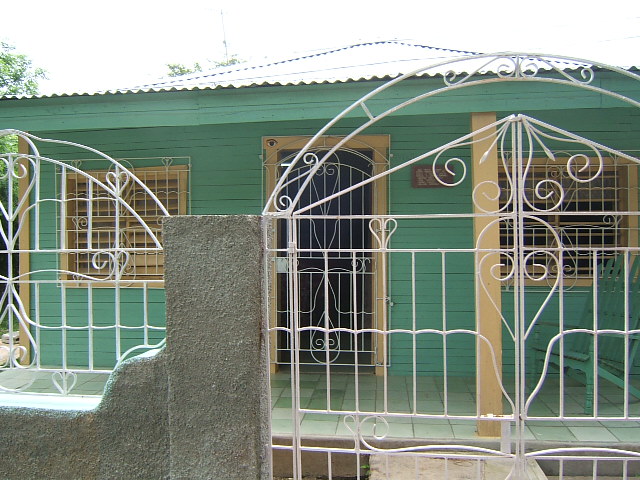 A commemorative plaque marks the home where the four survivors of the assault on the Bayamo's Carlos M. de Céspedes Barracks were taken in. |
In the community of Omaja, one of the villages in the municipality of Majibacoa, history roams the streets, dusty and silent like those of Western films; and in any of them, there are anecdotes and testimonies of important events.
Las Tunas, Cuba.- The best known to most people from Las Tunas has to do with the founding of the region on 16 October 1906, in an almost virgin area, covered with large forests of precious woods, and crossed, like a scar, by the central railway.
There are many traces of that time in the architecture, customs, and even in the surnames of its inhabitants. But other events took place there that came to light much later and that now might go unnoticed.
I am referring exactly to what happened a few days after the assault on the Carlos Manuel de Céspedes barracks in Bayamo, when four courageous young men found refuge in this sometimes forgotten place, and were finally able to escape the persecution of the tyranny.
On 26 July 1953, Raúl Martínez, Gerardo Pérez, Rolando Rodríguez, and Ramiro Sánchez left in a car and then walked to the farm of a relative of one of them. They received some clothes and money, but they did not find a haven.
However, as luck would have it, Luis Batista Lores was employed there and did not hesitate to take them to his parent's house in Omaja. First, Rolando and Ramiro arrived, dressed as peasants so as not to arouse suspicion, and although they lived through tense days, they were able to board a motor car bound for Las Tunas.
Three days later, they received Raúl and Gerardo, the latter with a shallow wound that was treated in the same house. After a few days, the operation was repeated and both left the town to safety, without being recognized.
For these revolutionaries, life could have ended early, had it not been for the good deeds of the Batista Lores family. They, with humility and dedication, fed, sheltered, and cured the four young men without knowing them, without asking for anything in return. Only with the hope of a better future for the homeland.
